What happened to these two boys is a mystery - but they are not encased in that urn at Westminster Abbey.
|
On the 2nd of November in 1470, Edward, the eldest son of Edward IV and Elizabeth Woodville was born at Cheyneygates, the home of the Abbot of Westminster. He was heir to the throne. Edward was brought up at Ludlow Castle on the Welsh Marches. At the age of twelve, he ascended the throne on the death of his father, however, he and his brother Richard of Shrewsbury were found to be illegitimate when the pre-contracted marriage of his father to Eleanor Butler came to light. Before Edward could be crowned, he and his younger brother disappeared.
What happened to these two boys is a mystery - but they are not encased in that urn at Westminster Abbey.
0 Comments
The 17th August 1473 is the date of birth of Richard of Shrewsbury, the second son of Edward IV and Elizabeth Woodville. Richard of Shrewsbury is, of course, was one of the Princes in the Tower. What we know of Richard can be viewed through the titles that were bestowed upon him and the dates and events that made up his life. His birth, as his name suggests, was at Shrewsbury, his marriage, at just four years old was to Anne Mowbray. We do not even know what he looked like but this doe's not stop writers, artists and film/television producers portraying him as an innocent, as angelic, a pure almost saintly child. Shakespeare has John Dighton calling Richard and his brother Edward ‘gentle babes.' They are emotive words that were intended to describe Richard's character - a foil to Shakespeare's protagonist, his uncle Richard of Gloucester in his play Richard III. Shakespeare's portrayal of the young prince would be used again and again over the years by artists, the most famous by Paul Delaroche and John Everett Millais, even the horror movie genre gets in on the act - John Herbert-Bond's young prince to Basil Rathbones Duke of Gloucester. Despite the fact that there is no evidence either way as to what happened to the princes, the tale of Richard's disappearance is the one event that defines this little boys life.
Sunday, 22nd June 1483 was the date originally set for Edward V’s coronation. Ralph Shaa preached at St Paul’s Cross on the theme that “bastard slips shall not take root”. I found the following among my paper on Richard III. I don't know who wrote it (I am sure it wasn't me) but it's rather brilliant.
"Last night I dreamt that I was directing a Hollywood movie about Richard’s life, starring George Peppard. We were shooting one of my favourite scenes. The one where our hero emerges from the throng, walks towards the camera, winks conspiratorially to the viewers, smiles knowingly, chomps on his nine inch Havana and utters that immortal line “I love it when a plan comes together. ” It seems that, as usual, the ‘A-Team’s ’plan was working perfectly. The bad guys had been outwitted effortlessly; all that was needed now was for Richard to be crowned and to live happily ever after. When I awoke from my cheerful slumbers, it was to the grim reality of history. This Sunday in 1483 was a pivotal moment in Richard’s life and in English history. Things would never be the same again for him or the realm. On Sunday 22 June 1483, Dr Ralph Shaa addressed a gathering of good and the great at St Paul's Cross to hear his sermon. His chosen theme was both controversial and regime changing: ‘Bastard slips shall not take root’. St Paul’s Cross was the usual venue for important official announcements, and they don’t come much more important that this one. We can be sure that Dr Shaa was acting on Richard’s behalf. His purpose was to put forward Richards claim to the crown. Given the importance of the occasion it is particularly disappointing that we don’t have any documentary evidence, or an eyewitness account of what the learned doctor actually said. Notwithstanding their proclivity for reporting every piece of royal tittle-tattle, the near-contemporary chronicles’ are unable to give a first-hand account of this meeting. All we have are the second-hand accounts of Mancini, More and Vergil et al. The problem with these is that they are hearsay and in Mancini’s case we are not even sure he understood what he was told. The Tudor writers such as More and Vergil were even further removed from these events and cannot be trusted to be objective. The controversy that has arisen concerns Richard’s true title to the crown. Mancini and Vergil maintain that his claim was on the basis of his brother’s bastardy. There is no mention of the pre-contract with Eleanor Butler being alleged at this meeting. The Great Chronicler declared the Richard’s claim was due to the fact that Edward’s children “were not the rightful inheritors of the crown” and that Edward was illegitimate. Croyland is quite clear: Richard alleged that a pre-contract between his brother and Eleanor Butler disqualified Edward’s children from succeeding to the crown. It is difficult at this distance of time and in the absence of reliable reports to be sure exactly what was said. However, on the balance of probabilities I personally believe that the pre-contract was raised at this meeting. It seems inconceivable to me that Richard would not base his claim to the throne on it at this meeting. It was a problem he had agonised over for two weeks, he had executed a former comrade in arms because of it and he had prepared for it. Why would he not put it forward as a reason now? (NB: To mention the subsequent role of Parliament and Titular Regius now is to anticipate the future, which I want to avoid doing.) The allegation of Edward’s illegitimacy is an old one. However, it is not an issue that Richard had ever raised before; indeed, we don’t even know that he believed the rumours. For me to accept that this was his only grounds for assuming the crown, would be to acknowledge that he did indeed usurp the crown. Richard’s reaction to the Woodville coup in April, his actions as Lord Protector during May and early June are not indicative of a man intent on usurping the crown. In fact, his actions support the opposite: Richard intended to see his young nephew crowned as king by right of succession. He had behaved impeccably according to the law." NB If I ever find out who did write this I will most certainly give you a slap on the back and place your name here. |
Categories
All
Archives
May 2024
|

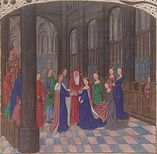
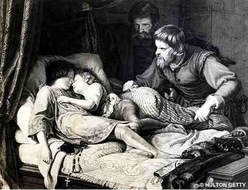
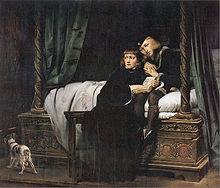
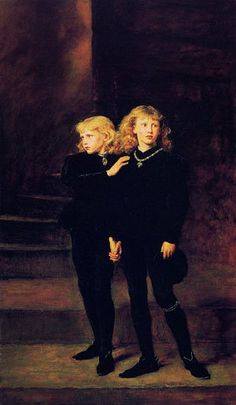
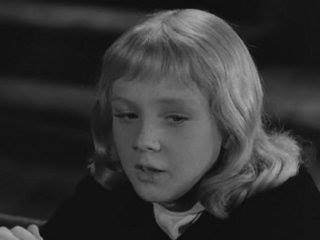
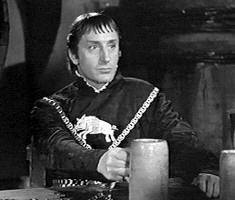
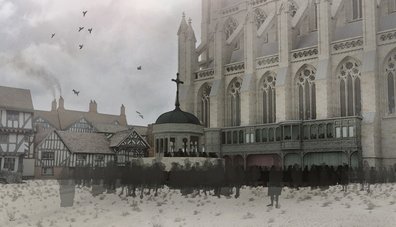
 RSS Feed
RSS Feed
